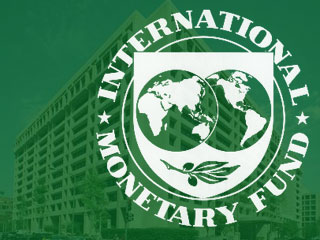Estonian budget must include "fundamental" changes, says IMF
 Tallinn - Estonia received warnings Monday about "unsustainable" spending along with a call for a more balanced budget during a visit by the International Monetary Fund (IMF) to the recession-hit Baltic state.
Tallinn - Estonia received warnings Monday about "unsustainable" spending along with a call for a more balanced budget during a visit by the International Monetary Fund (IMF) to the recession-hit Baltic state.
Although Estonia has not yet borrowed any funds from the IMF to help it through its recession, IMF representatives met with government officials for an update on the country's economic situation.
Such visits are routine for IMF members states, though the depth of the country's recession has prompted speculation that it might be forced to borrow money.
The federal budget being prepared by the government of Andrus Ansip must include "fundamental rebalancing of fiscal expenditures and revenues," warned the IMF at the conclusion of its meeting with Estonian officials.
Speaking at the Estonian central bank, the IMF's Christoph Rosenberg said the government's target of a budget deficit equivalent to 3 per cent of GDP was "appropriate" and would help the country toward its goal of adopting the euro as its currency in 2011 or 2012.
"Given the uncertain outlook, all options - on both the revenue and the expenditure side - should be considered," Rosenberg said.
Marten Ross, the deputy governor of the Estonian central bank, said much had already been done to address the issues raised by the IMF in both the public and private sectors.
"I would like to highlight that the economy and structural changes are underway ... and there are the first signs of economic stabilization. Only in this way can we create and maintain confidence in the Estonian economy to accelerate the growth of new investment," he said.
After years of spectacular growth, the Estonian economy plunged into a deep recession in 2008 in which it is still stuck.
However, unlike neighbouring Latvia, Estonia did set aside some of the money generated during the boom years and has not yet been forced to seek a bail-out from the IMF, though it has received assistance from other lenders, including Sweden.
Attempts to draw up a revised budget, including big cuts in public expenditure, are putting pressure on Ansip's coalition government. There are signs that one coalition party may leave, to be replaced by an opposition party.(dpa)